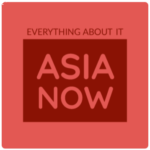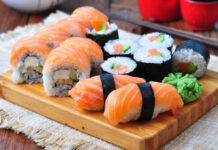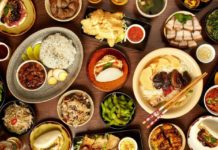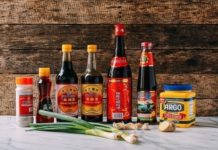Family and community are important aspects of the Malaysian lifestyle. Malaysians tend to have close-knit families and often prioritize spending time with family members. Extended families often live in close proximity to one another, and family gatherings and celebrations are cherished events.
Food is a central part of the Malaysian lifestyle, with diverse culinary traditions from different cultures. Malaysians love to eat, and food is often a social activity. Hawker centers, which are open-air food markets, are popular gathering places where people can sample a wide variety of local dishes.
- Malaysian cuisine is known for its diverse flavors, influenced by Malay, Chinese, Indian, and indigenous culinary traditions. Food is a significant part of the Malaysian lifestyle, and Malaysians take great pride in their cuisine. Eating is often considered a social activity, and meals are typically enjoyed with family and friends.
- Hawker centers are a popular culinary hub in Malaysia. These open-air food markets are typically located in bustling areas and offer a wide variety of local dishes at affordable prices. Hawker centers are known for their vibrant atmosphere, with stalls serving up a diverse array of delicious street food, from satay (grilled meat skewers) to nasi lemak (coconut milk rice with various side dishes), char kuey teow (fried flat noodles), roti canai (Indian-influenced flatbread), and many more. Hawker centers are not only a place to satisfy one’s appetite but also a social gathering spot where people from all walks of life can come together to enjoy a meal and engage in conversations.
- In addition to hawker centers, Malaysia is also famous for its food courts, restaurants, and cafes that serve a wide range of cuisines from different cultures. Malaysians are known for their love of food, and exploring the local culinary scene is a popular pastime. The diversity of Malaysian cuisine offers a unique and delicious experience for food enthusiasts, making it an integral part of the country’s lifestyle.
Religion also plays a significant role in Malaysian lifestyle, with Islam being the dominant religion followed by Buddhism, Hinduism, and Christianity. Religious practices and customs are integrated into daily life, including observing fasting during the month of Ramadan, visiting temples and mosques, and participating in religious festivals and celebrations.
- Religion is an important aspect of the Malaysian lifestyle, with Islam being the dominant religion followed by a significant portion of the population. Malaysia has a diverse religious landscape, with Buddhism, Hinduism, and Christianity being practiced by sizeable communities as well.
- Islam is deeply ingrained in the daily life of Malaysian Muslims. Many Muslims in Malaysia observe religious practices, such as performing daily prayers, reading the Quran, and following Islamic customs and traditions. The holy month of Ramadan is particularly significant, and Muslims in Malaysia observe fasting from dawn till dusk, followed by festive celebrations during Eid al-Fitr (known as Hari Raya Aidilfitri in Malaysia).
- Other religions, such as Buddhism, Hinduism, and Christianity, also have their respective communities in Malaysia, and their customs and practices are integrated into daily life as well. Buddhists visit temples for prayers and engage in religious rituals, while Hindus participate in various ceremonies and festivals at temples. Christians attend church services and celebrate Christian holidays such as Christmas and Easter.
- Religious festivals and celebrations are an important part of the Malaysian lifestyle, and they are celebrated with enthusiasm and joy by people of different religions. These festivals often involve family gatherings, communal prayers, feasts, and cultural performances, showcasing the diversity of Malaysia’s religious and cultural heritage.
- It’s important to note that Malaysia practices a moderate form of Islam, and the country is known for its religious harmony and tolerance. People of different religions often coexist peacefully and respect each other’s beliefs and practices, adding to the cultural richness of Malaysia’s lifestyle.
Malaysia is known for its festivals and cultural events, such as Hari Raya Aidilfitri (Eid al-Fitr), Chinese New Year, Deepavali, and many more. These celebrations are colorful and vibrant, involving traditional music, dances, and costumes, and are cherished by Malaysians of different ethnicities and religions.
- Malaysia is renowned for its diverse festivals and cultural events, which are celebrated with great enthusiasm and joy by people of different ethnicities and religions. These celebrations are an integral part of Malaysian lifestyle and reflect the rich cultural heritage of the country.
- Hari Raya Aidilfitri, also known as Eid al-Fitr, is one of the most significant festivals for Muslims in Malaysia. It marks the end of Ramadan, the holy month of fasting, and is celebrated with family gatherings, communal prayers at mosques, and festive feasts. Malaysians often wear new traditional clothes, decorate their homes, and exchange greetings and gifts during this festive season. The streets are adorned with colorful lights, and there are various cultural performances, such as traditional music, dances, and cultural shows, adding to the festive atmosphere.
- Chinese New Year is another major festival celebrated by the Chinese community in Malaysia. It is a time for family reunions, feasting, and various cultural activities. Malaysians of Chinese descent engage in traditional practices, such as lion and dragon dances, lighting firecrackers, and giving out red packets with money as a symbol of good fortune.
- Deepavali, also known as Diwali, is a significant festival celebrated by the Indian community in Malaysia. It is known as the Festival of Lights and signifies the victory of light over darkness and good over evil. Deepavali celebrations in Malaysia involve oil lamp decorations, colorful rangoli (decorative art created with colored powders, rice, or flower petals), traditional music and dances, and feasting on Indian sweets and snacks.
- Apart from these major festivals, Malaysia also celebrates other cultural events and traditions, such as the Mooncake Festival, Thaipusam, Wesak Day, and many more. These festivals are marked by vibrant cultural performances, traditional costumes, and various customs and practices, reflecting the diverse cultural tapestry of Malaysia.
- The colorful and vibrant festivals and cultural events in Malaysia are not only cherished by the communities celebrating them but are also embraced and appreciated by Malaysians of different ethnicities and religions, promoting cultural diversity and harmony in the country’s lifestyle.
Outdoor activities are popular in Malaysia due to their tropical climate and diverse natural landscapes. Malaysians enjoy spending time in nature, whether it’s visiting beautiful beaches, exploring lush rainforests, or hiking in the mountains. Sports such as badminton, football (soccer), and traditional games like sepak takraw are also popular in Malaysia.
- Malaysia’s tropical climate and diverse natural landscapes offer a wide range of outdoor activities for Malaysians and tourists alike to enjoy. From beautiful beaches to lush rainforests and towering mountains, Malaysia is a haven for nature lovers and outdoor enthusiasts.
- Beaches are a popular destination for Malaysians to unwind and relax. Malaysia is known for its stunning beaches, such as Langkawi, Penang, and Tioman, where people can indulge in activities like swimming, snorkeling, scuba diving, and beach sports. Water sports like jet skiing, parasailing, and banana boating are also popular among adventure-seekers.
- Malaysia’s rainforests are also a treasure trove of biodiversity, with national parks and nature reserves that offer opportunities for hiking, camping, and wildlife spotting. Taman Negara, the oldest rainforest in the country, is a popular destination for jungle trekking, river cruising, and exploring canopy walkways. Other rainforest destinations like Borneo’s Kinabalu National Park and Taman Negara Sabah also offer unique outdoor experiences.
- Hiking and mountain climbing are popular outdoor activities in Malaysia, with several mountains and highlands offering breathtaking views and challenging trails. Mount Kinabalu in Sabah, Gunung Tahan in Pahang, and Cameron Highlands in Pahang are popular destinations for hiking and trekking enthusiasts.
- Sports play an important role in Malaysian lifestyle as well, with badminton being the most popular sport in the country. Malaysia has produced world-class badminton players and has a strong badminton culture with numerous badminton courts and clubs across the country. Football (soccer) is also widely followed and played in Malaysia, with a strong fan base and local football clubs. Traditional games like sepak takraw, a unique combination of soccer and volleyball, are also popular among Malaysians and often played in local communities and at cultural events.
- Outdoor activities are not only popular for recreational purposes but also for promoting a healthy and active lifestyle among Malaysians. Many people in Malaysia enjoy spending time in nature, engaging in physical activities, and participating in sports as a way to stay fit, have fun, and connect with the country’s natural beauty and cultural heritage.
In terms of fashion, Malaysians tend to dress modestly, with cultural and religious influences shaping clothing choices. Traditional clothing, such as the baju kurung for women and the baju Melayu for men, are commonly worn during special occasions or formal events, while Western clothing is popular in everyday wear.
- Fashion in Malaysia is influenced by cultural and religious factors, and modesty is often emphasized in clothing choices. Traditional clothing, such as the baju kurung for women and the baju Melayu for men, hold special significance in Malaysian culture and are commonly worn during special occasions, cultural events, and festive celebrations.
- The baju kurung is a traditional Malay attire for women that consists of a loose-fitting tunic top and a long skirt. It is often worn with a headscarf known as tudung or hijab, which is a symbol of modesty and religious observance for many Malay Muslim women in Malaysia. The baju Melayu is a traditional Malay attire for men that includes a loose-fitting tunic top, trousers, and a songkok, a traditional Malay cap.
- Apart from traditional clothing, Western clothing is also popular in Malaysia for everyday wear, especially among the younger generation and in urban areas. Malaysians often dress in modern and fashionable clothing styles, keeping up with global fashion trends. Western clothing, such as jeans, t-shirts, dresses, and suits, are commonly worn in offices, schools, and social events.
- Malaysia’s diverse cultural influences, including Malay, Chinese, Indian, and other ethnic traditions, also contribute to the fashion scene in the country. Different cultural groups in Malaysia have their own traditional clothing styles and accessories, which are often worn during cultural events, weddings, and festivals. These traditional clothing styles add diversity and richness to Malaysia’s fashion landscape, showcasing the country’s multicultural heritage.
- It’s important to note that while Malaysians generally follow modest dressing norms influenced by cultural and religious factors, there is also diversity in fashion choices and personal styles among individuals. Malaysia’s fashion scene is dynamic and ever-evolving, reflecting a blend of traditional, modern, and global influences, and providing Malaysians with a wide range of options to express their personal style.
In recent years, Malaysia has become more cosmopolitan, with urban areas offering modern amenities and a contemporary lifestyle. However, traditional values and customs are still highly respected and preserved in many parts of the country, adding to Malaysia’s unique and diverse lifestyle.




